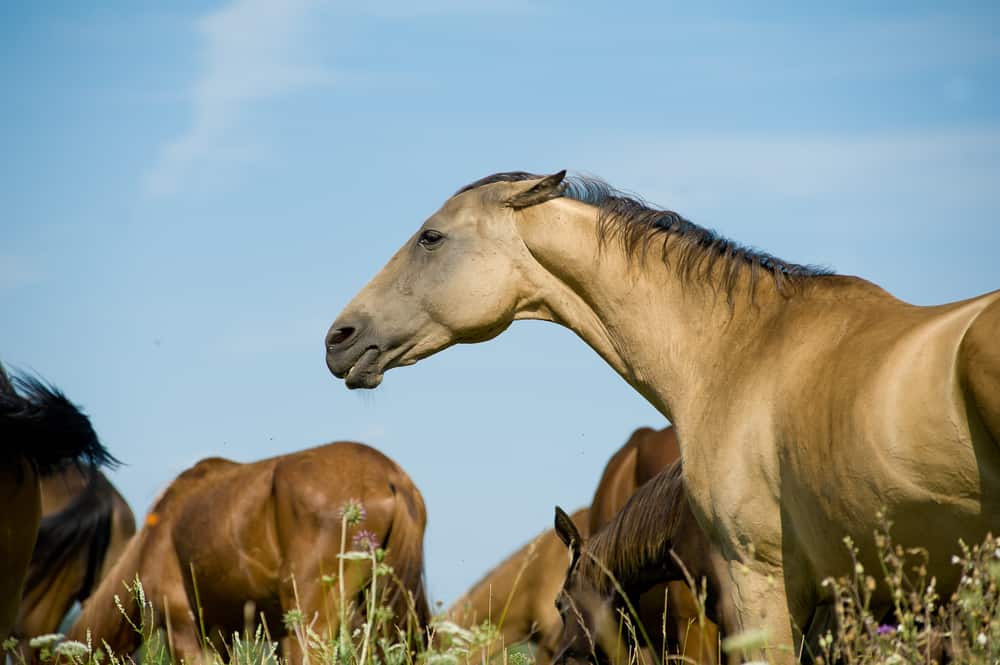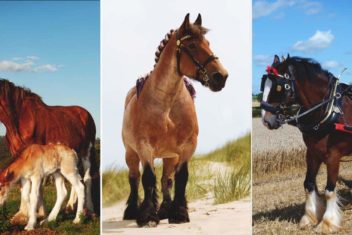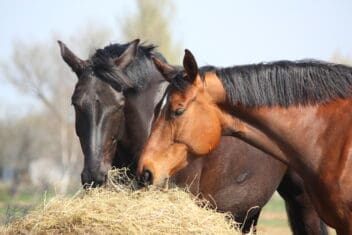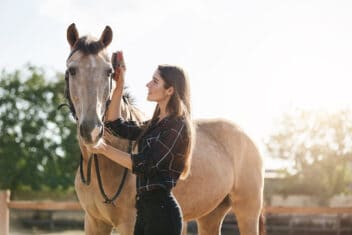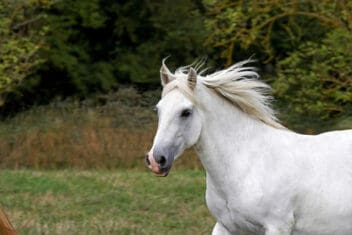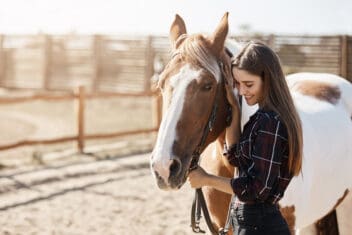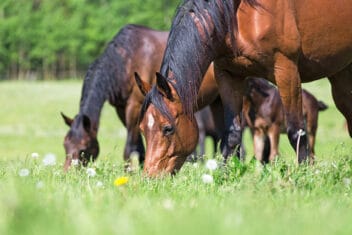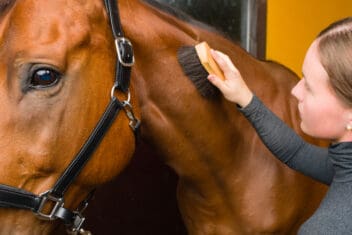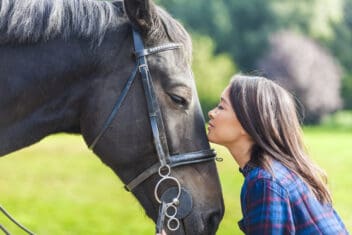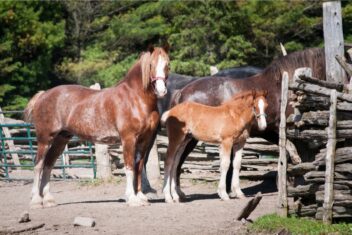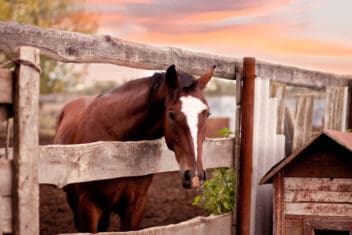Every species has things they generally love, and those they despise. For example, nearly all dogs like to have their necks scratched. Rabbits usually like to nibble banana treats and goats hate to get wet. There are a lot of things horses dislike too. They all have distinct personalities, but there are things that you can be certain they’ll hate.
Many people either forget or disregard these preferences and do them anyway. Maybe they feel like their horse won’t be bothered by them. Or they forget that they’re interacting with intelligent beings who have their own thoughts and emotions.
Horses aren’t just chairs on movable legs: they’re extraordinary creatures who deserve love and respect. Below are some of the most common things that horses dislike, but many people end up doing anyway.
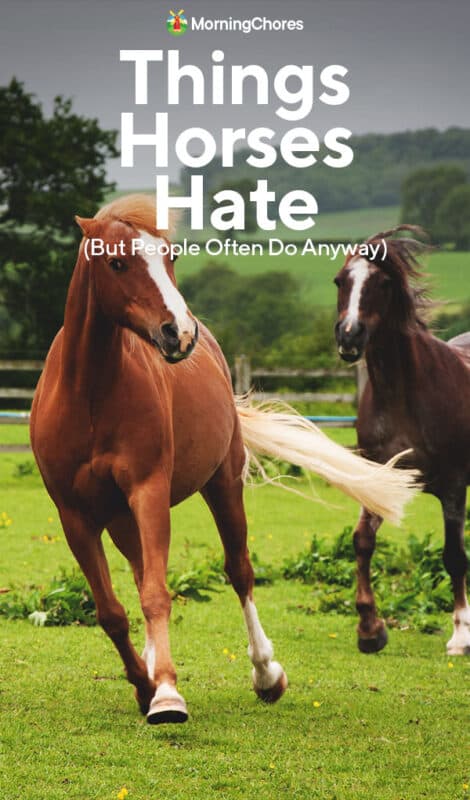
1. When People Approach from Behind
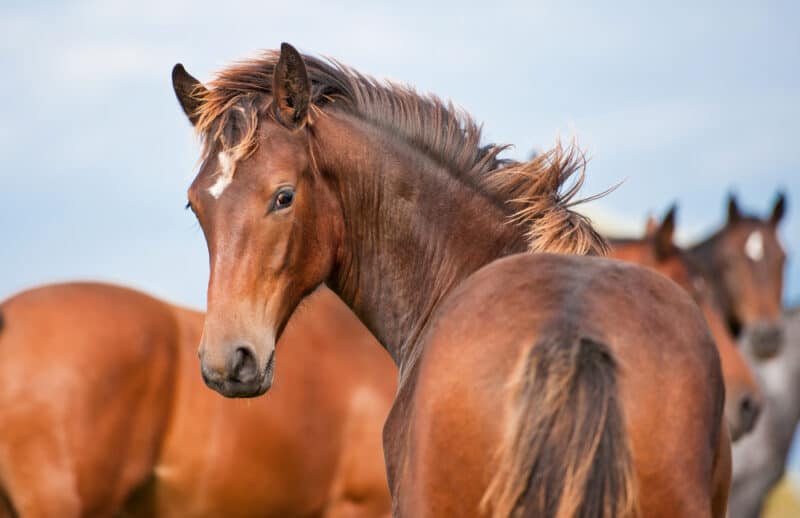
Horses have good peripheral vision, but they don’t have eyes at the backs of their heads. They get downright spooked if something or someone suddenly pops up behind them and they can’t see who or what it is.
Do you walk up to your horse from behind without calling his name to let him know you’re approaching? Then you’re likely to get kicked sooner rather than later. Seriously, do some research on how damaging a horse kick to the sternum or skull can be and you’ll never approach from the rear again.
2. Carrying Riders Who are Upset or Angry
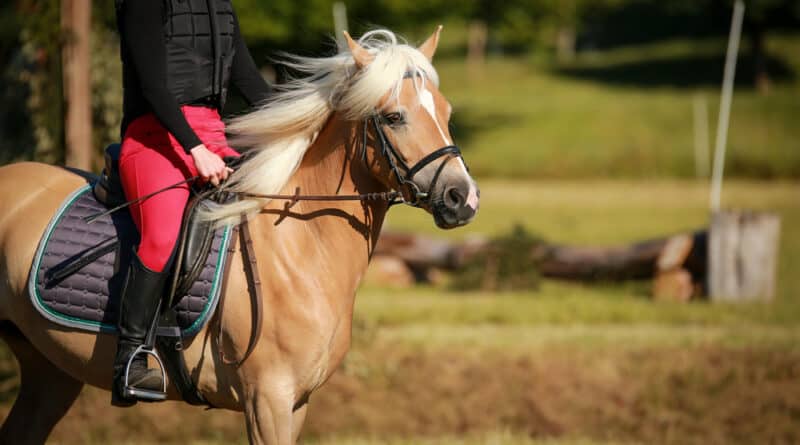
Most animals (and humans, believe it or not) have pretty strong senses when it comes to what others are feeling. Sure, your average golden retriever might be derpy enough to not “get it” some days, but horses are incredibly attuned. If you have so much as a wave of irritation or anxiety, they’ll notice and react to it.
This can result in them spooking or shying easily, or by being unusually stubborn or temperamental.
If you’re having a bad day, then don’t ride your horse. Hang out with her, feed her some apples, maybe walk around the paddock or field together. You’ll undoubtedly feel alot better after spending time together without the added stress of miscommunication or emotional upheaval.
3. Being Stuck in Their Stalls for Too Long
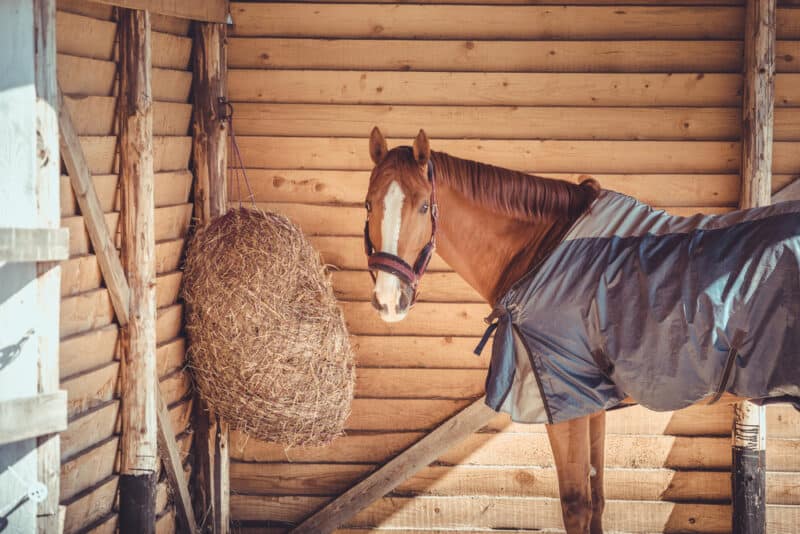
How antsy do you get if you have to stay still for too long? Do you need to get up and walk around if you’re on a flight that lasts more than a couple of hours? Or do you count down the seconds at work until you can escape your cubicle of misery?
Now multiply that feeling by about 1000 and you can imagine how a horse feels when it’s in its stall for too long.
These animals were made to run and frolic about. When they’re trapped in a small, confined area for too long, they go stir crazy. It might be easier or more convenient for you to keep them where they are while you do other things. But they can end up cribbing, pacing, or fighting their way out if they’re locked up too long.
Make sure that your horses get to run around freely as much as possible. Turn them out daily, or allow them to roam freely in the pasture and just lock them in for the night for their safety. Furthermore, mix up their routines so they don’t get bored. Oh, and introduce new toys regularly for them to interact and play with.
4. Training Too Much, Too Often
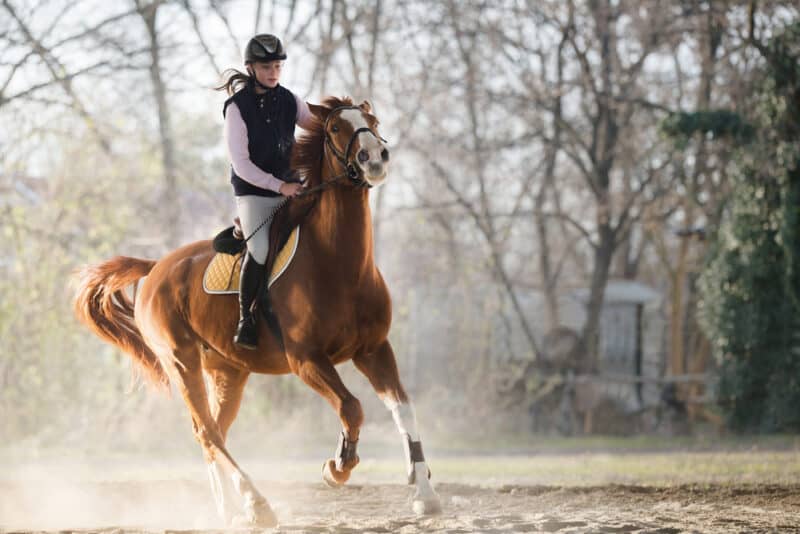
You love spending time with your horse, we get it. Maybe you’re super eager to get him trained well so you two can go on adventures together. That’s great, but training is both physically and mentally exhausting for these creatures. They need downtime to just “be.”
It’s the same way that kids need time to just be kids and not be pushed to go from school to extracurriculars, then piano lessons on weekends, plus homework. It’s just too much.
Not only will this exhaust your horse, it’ll make him resent you too. Any time he sees you, he’ll associate you with forcing him to do a ton of stuff he doesn’t want to do. If you want to have a good relationship with him, make sure to share a lot of downtime and “fun” stuff with him too, so he wants to spend time with you.
5. Yanking Reins

Everyone starts horse riding as a beginner and you will make mistakes. That said, try to get past yanking or jerking the reins as soon as you can. Stop your kids from doing it, too. You might think that you’re getting the horse’s attention with a quick movement, but not only is it super irritating to them, but it can hurt them too.
As far as things horses dislike go, this one is pretty much ubiquitous. If you wouldn’t want someone yanking your head to the side to get your attention, don’t do it to your horse.
6. Yelling at Them
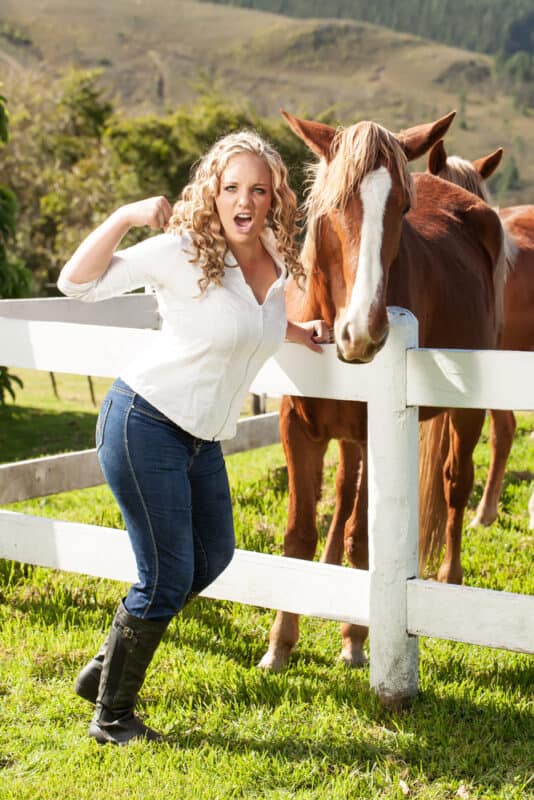
If you’re trying to keep your horse from running into a thorn bush, then definitely yell to try to get their attention. But if they just aren’t behaving the way you want them to, or you’re trying to punish them for a behavior you don’t like, then yelling is pretty much the worst thing you can do.
Not only do horses really dislike loud noises, but getting aggro at them isn’t going to encourage any kind of cooperation or love towards you. In fact, it’ll have the opposite effect. Are you eager to spend time with people who scream at you for making mistakes?
Furthermore, if a horse is acting out in some way, chances are it’s unhappy with some aspect of its life and is trying to communicate that.
Instead of pitching a fit and screaming at an animal who can’t explain itself, try to determine the reason why it’s behaving that way. Then work with it gently and lovingly to reach an accord that bodes well for both of you.
7. People Running Around When They’re Resting
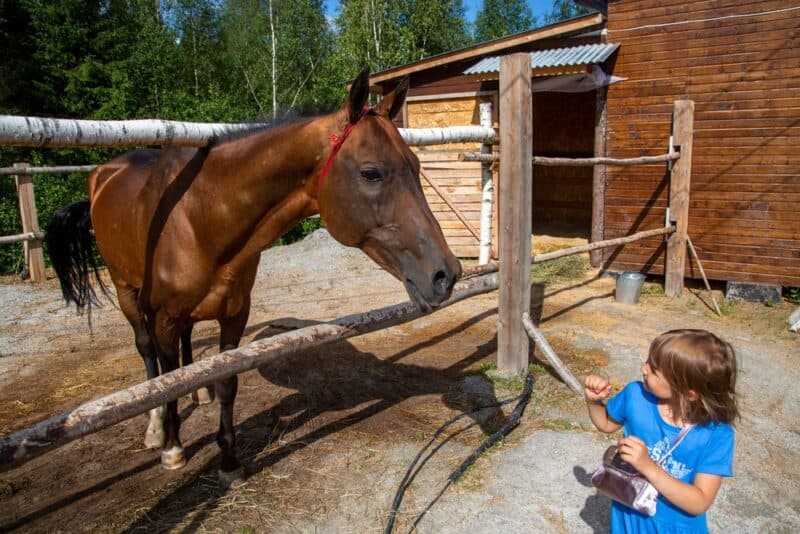
You might be in a rush to get something out of the barn, so you decide to do a quick run-through to get it. Meanwhile, your horses are dozing merrily and will freak out if something dashes past their stalls suddenly. Horses are prey animals and they will associate sudden, quick motion with a predator who’s out to gnaw on them.
Unless there’s an absolute emergency, walk at a calm pace and talk to the horses to let them know you’re around. Call out their names, or sing softly, and keep your pace even and relaxed. Make sure they feel safe and secure, rather than on high alert so they don’t think a mountain lion or wolf might be in the barn.
8. Crinkly Sounds

Okay, this one might seem weird to you, but remember that horses are hypervigilant. Any unfamiliar sound or object can spook them enough to throw someone, or rear up and flail around. God help you if you open an umbrella near them, or if they spot a plastic bag in a tree!
This goes for unfamiliar crinkly sounds too. Horses absolutely hate the sounds of a plastic water bottle crackling near or behind them. The same goes for velcro. While they can get used to crinkly sounds, make it a gradual, easy process.
Over time, horses can even come to love the sound of crinkling plastic. Have you ever seen a horse that responds to a bag that they know is full of carrots?
9. Keeping Them Alone
Horses are herd animals. Humans have decided that keeping them separately can be easier (and result in fewer injuries) so we keep them isolated. Horses hate this. They need companionship. Read more about providing your horse with companionship in our guide.
Tips For Understanding Your Horse’s Preferences
Learn how to read a horse’s body language so you know what they’re trying to communicate to you. Since they can’t just up and tell you what they’re thinking or feeling, you need to learn their physical cues.
How are they moving their ears and eyes? Are they shying away sideways? Stomping? Champing or pulling back their lips? These are all signs that you’re doing things your horses dislike.
Read books or work with trainers to learn what your horse is trying to tell you. Learn how to communicate with him or her in return. You now know most of the things horses dislike, but individuals will have personal preferences and aversions as well. Pay attention to your horse and you’ll learn their triggers.
When you learn another’s language, there are fewer opportunities for misunderstandings. This goes for any relationship, of course, but is of the utmost importance when your friend is nonverbal and has to use body language to be understood.
